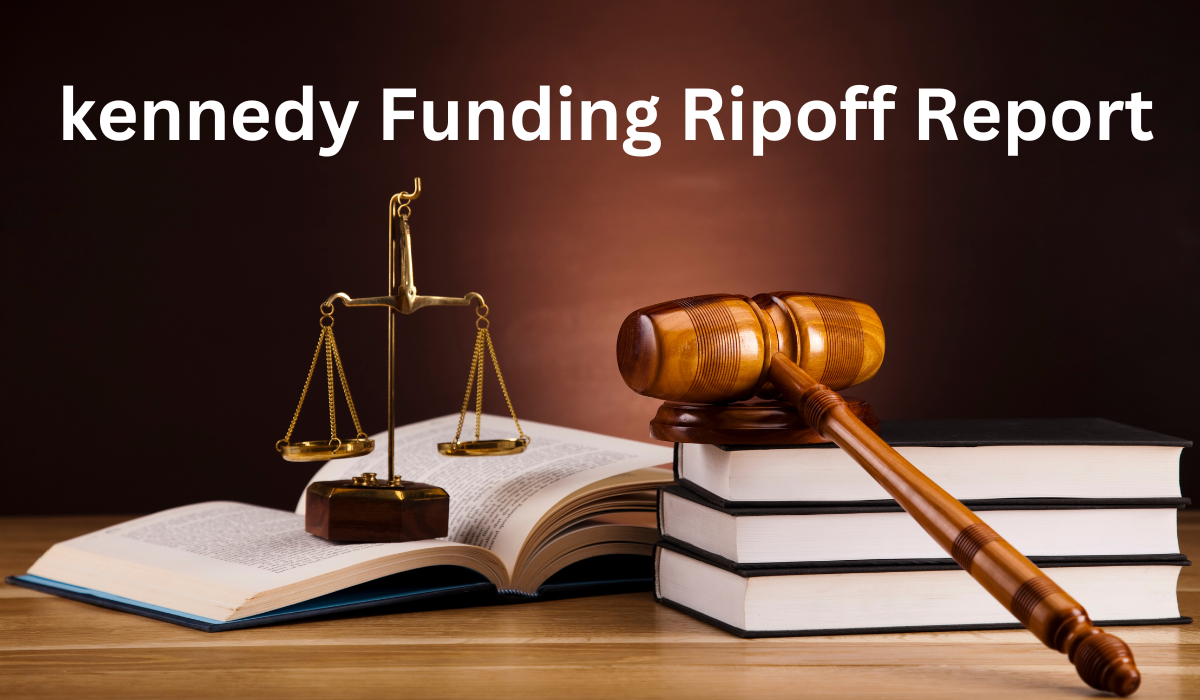When it comes to private lending in real estate, Kennedy Funding is no stranger to the spotlight—but not always for the right reasons. Over the years, the company has garnered attention for numerous customer complaints and legal challenges, leading many potential borrowers to conduct deeper research on the topic. If you’ve landed here searching for a Kennedy Funding ripoff report you’re likely looking for insight into whether this lender is the right fit for your financial needs.
This article will outline the common issues reported about Kennedy Funding, explore the company’s steps to mitigate these concerns, and provide actionable tips to ensure you make informed decisions when borrowing.
Common Complaints About Kennedy Funding
Private lending can be a powerful tool for real estate investors, but not all private lenders operate on the same terms. Kennedy Funding, a company specializing in real estate loans, has faced a fair share of criticism over the years. Here are some of the most commonly reported issues from client feedback and legal disputes:
1. Hidden Fees
One of the most frequent complaints against Kennedy Funding involves undisclosed or hidden fees. Borrowers have reported encountering unexpected costs during the loan process, which can add strain to already complex real estate transactions. These fees often appear as “commitment fees” or administrative charges that were either not disclosed upfront or inadequately explained in the loan terms.
Hidden fees are not just frustrating—they can significantly alter the economics of a real estate project and leave borrowers scrambling to cover unexpected costs. Transparency is key in financial agreements, but clients have raised concerns that Kennedy Funding’s approach falls short in this area.
2. Poor Communication
Another prevalent issue revolves around poor communication with the company’s representatives. Clients have reported difficulty in reaching decision-makers or loan officers, leading to delays in progress on critical transactions. For some, the lack of responsiveness created uncertainties that added stress to already high-stakes projects.
Clear, open communication is essential to any successful business relationship—especially in lending, where time is often of the essence. Yet, according to feedback, Kennedy Funding has struggled to provide timely updates or clear information at several stages of the loan process.
3. Loan Processing Delays
Slow approval times are a recurring theme in borrower complaints. Many real estate investors depend on timely access to capital to secure deals, meet deadlines, or avoid penalties for delays. Several clients allege that Kennedy Funding’s loan approval and disbursement timelines have stretched far beyond what was initially agreed upon, jeopardizing their projects.
Such delays can lead to cascading problems across real estate deals, from lost opportunities to strained relationships with partners and contractors. Delayed funding in a real estate project can significantly increase project costs and erode confidence in the borrower-lender relationship.
How Kennedy Funding Has Responded to Criticism

Kennedy Funding has stated that they are taking client feedback seriously and actively working to improve transparency and customer service. Here are a few actions the company claims to have undertaken in response to criticisms:
- Internal Reviews: The company has reportedly conducted internal audits to identify systemic issues in communication and fee disclosures.
- Enhanced Transparency: Promises have been made to provide borrowers with more detailed and upfront information about loan terms, associated fees, and timelines.
- Improved Customer Service: Efforts to bolster responsiveness include hiring additional staff and streamlining processes to address customer queries more efficiently.
While these efforts demonstrate acknowledgment of their issues, satisfaction levels remain mixed among borrowers. Conducting due diligence remains as vital as ever for anyone considering Kennedy Funding for their real estate financing needs.
Past Legal Disputes Related to Kennedy Funding
Legal struggles have also cast a shadow on Kennedy Funding, further fueling concerns among potential borrowers. One notable case is Kennedy Funding v. Ruggers Acquisition Development. This case highlighted controversies surrounding commitment fees and the lender’s obligations, drawing attention to potential pitfalls in their loan agreements.
Though not all legal disputes result in unfavorable rulings for Kennedy Funding, the very existence of repeated litigation underlines the importance of reading loan terms carefully, consulting legal counsel, and ensuring complete clarity before proceeding with any loan agreement.
Protecting Yourself as a Borrower
If you’re exploring private lending options, it’s crucial to stay well-informed before committing to any agreement. Here’s how you can protect yourself when considering Kennedy Funding or any similar lender:
- Thoroughly Review Loan Terms
Go through the loan terms with a fine-tooth comb, paying particular attention to fee structures, repayment schedules, and any clauses that could impose penalties.
- Ask for Full Disclosure of Fees
Don’t hesitate to request a detailed breakdown of all fees associated with the loan. If a lender is unwilling to provide clarity, consider it a red flag.
- Consult a Lawyer
Seek legal advice to ensure the loan terms align with your best interests. A lawyer can help identify potential hidden pitfalls that you may overlook.
- Compare Multiple Lenders
Research and compare offers from other private lenders to evaluate competitive options. Alternatives may offer more transparency, quicker approvals, or better terms.
- Check Customer Reviews and Testimonials
A company’s reputation is reflected in its customer feedback. Read reviews from multiple sources to get a balanced understanding of others’ experiences with the lender.
- Have a Contingency Plan
Always plan for unexpected delays or costs in case your loan approval process doesn’t go as planned.
FAQ’s About Kennedy Funding Ripoff Report
1. Is Kennedy Funding trustworthy?
Kennedy Funding has a long history in the private lending space; however, recurring client complaints and legal disputes suggest potential borrowers should approach with caution. Conducting thorough research is essential.
2. Are there alternatives to Kennedy Funding?
Yes, many private lenders and traditional banks offer real estate financing options. Comparing rates, terms, and reviews from multiple lenders can help you find the best fit.
3. How can I avoid hidden fees in loans?
Request a transparent breakdown of all fees before signing any agreement. Ensure you ask questions about administrative fees, commitment fees, or any terms that seem unclear. Consulting a lawyer can also help you spot less obvious charges.
4. What steps can I take if I face issues with Kennedy Funding?
If you encounter problems, try escalating your concerns within the company. You can also file a complaint with relevant regulatory bodies or seek legal action if necessary.
5. What are typical commitment fees for private lenders?
Commitment fees typically range from 0.5% to 2% of the loan amount, but exact terms vary between lenders. Always confirm these costs upfront.
Final Thoughts
Private lending like that offered by Kennedy Funding is a valuable resource for real estate investors, but it’s not without risks. While the company is making moves to address its reported shortcomings, potential borrowers must remain proactive and cautious. Conducting due diligence, seeking expert counsel, and exploring multiple options are essential steps to securing a lending experience that aligns with your goals.

